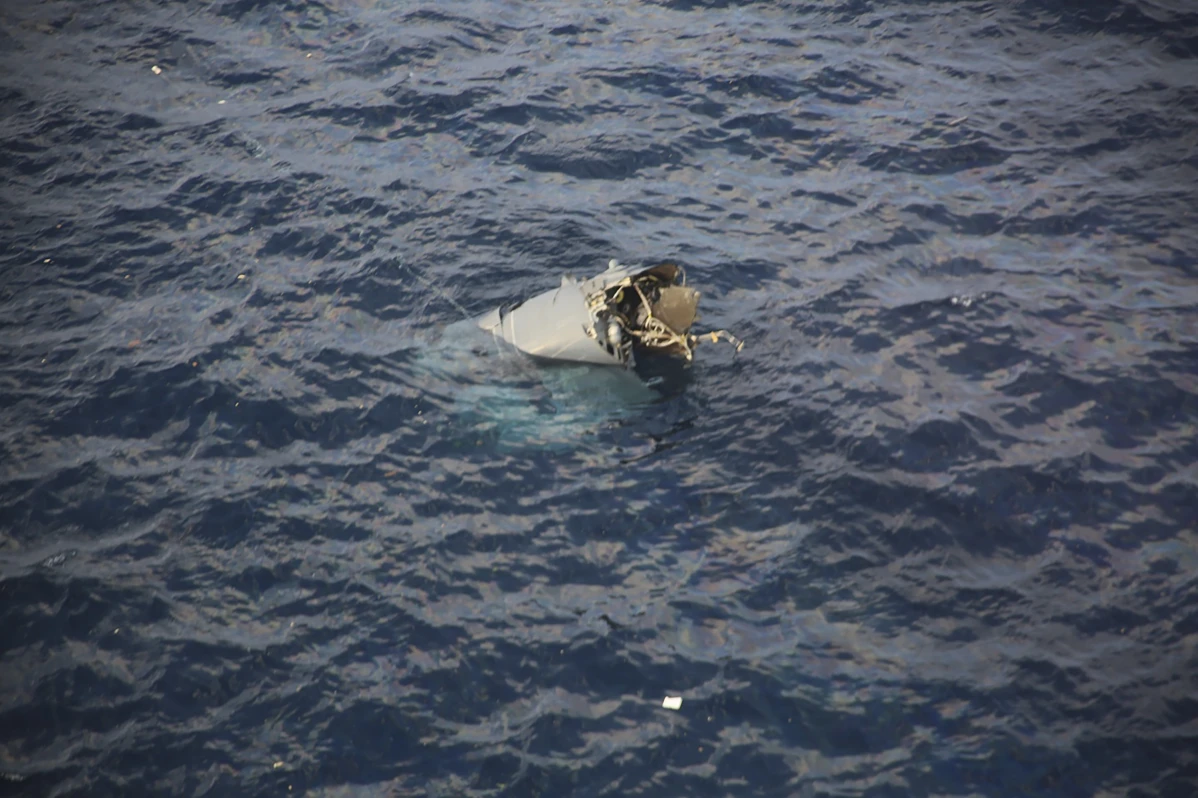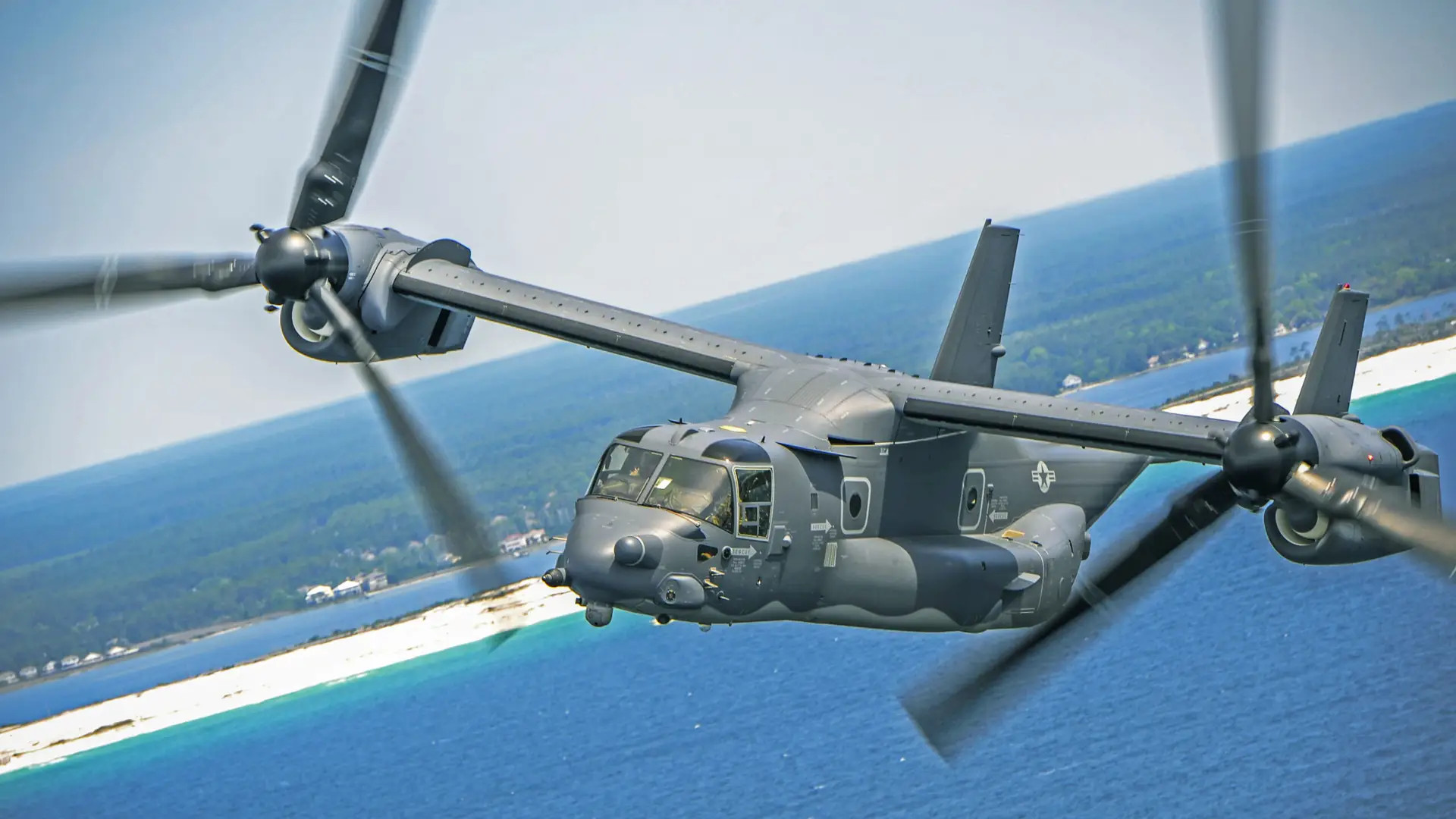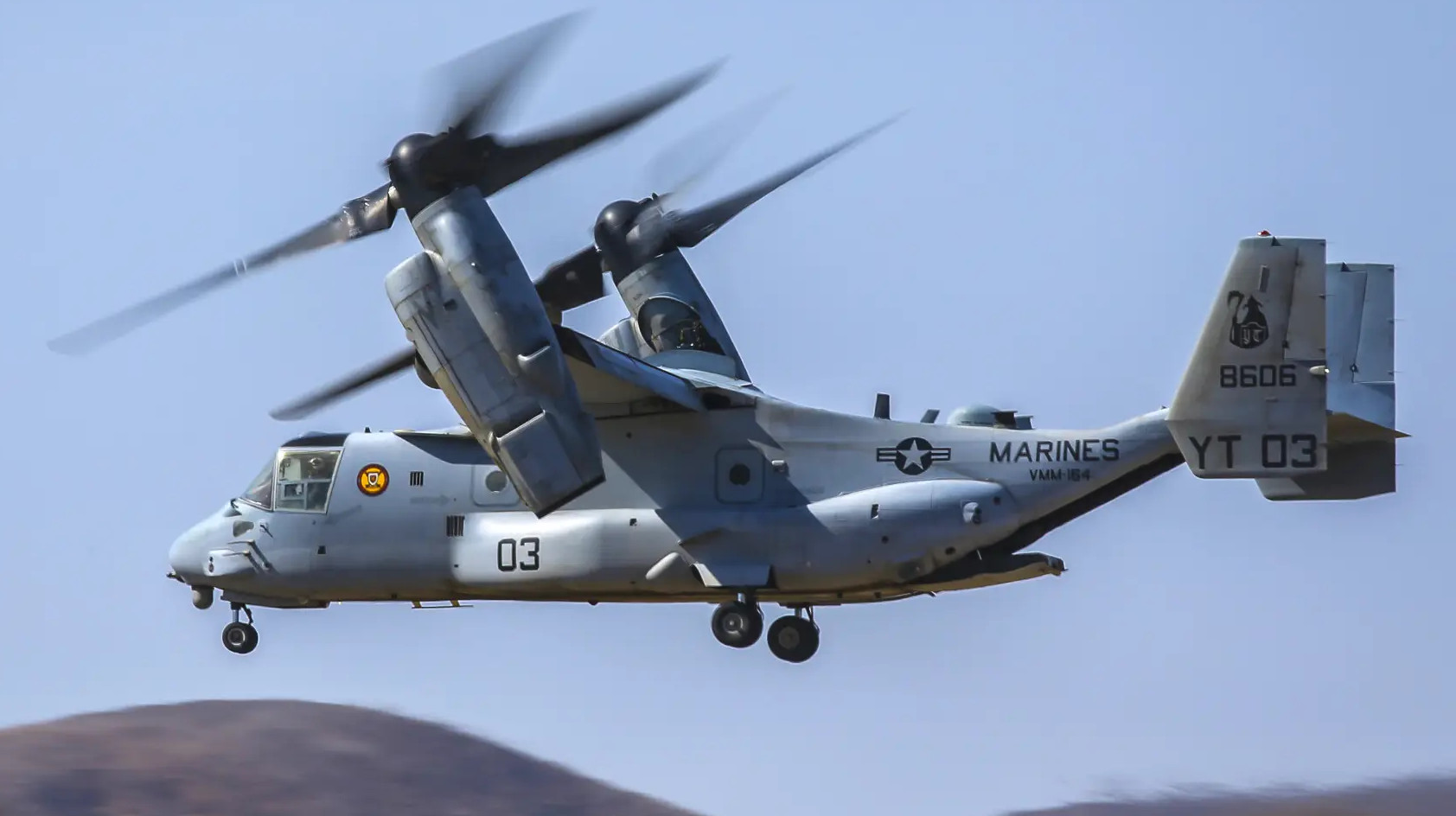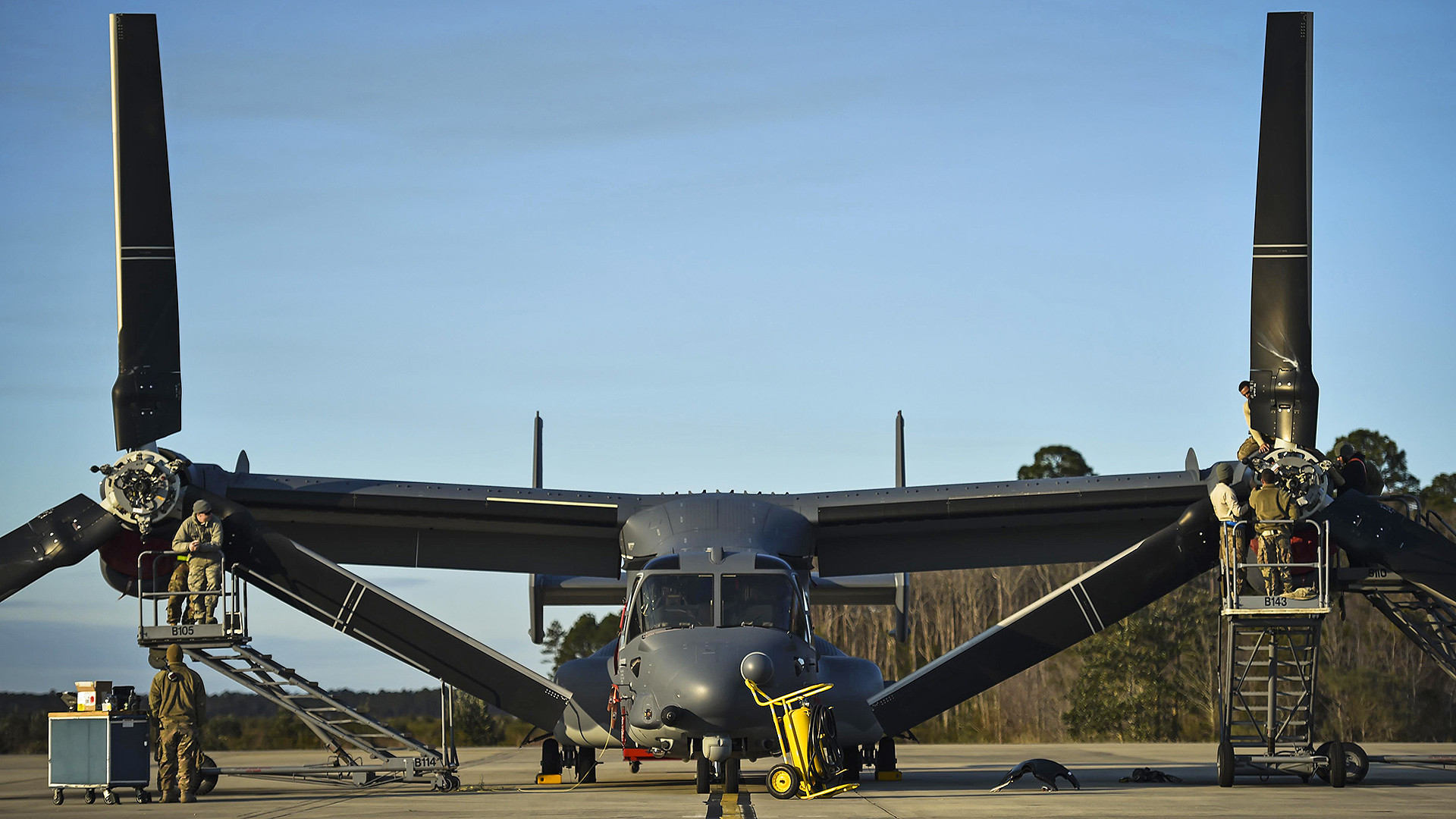The U.S. Air Force, Navy, and Marine Corps have all now grounded their respective V-22 Osprey tilt-rotor fleets. This follows a fatal crash involving an Air Force CV-22B off the coast of Japan’s Yakushima Island on November 29. An investigation into the accident is still ongoing, but has found evidence already that a “materiel failure” may have been the root cause.
The CV-22B, which was using the callsign Gundam 22 at the time, was conducting a routine training mission when it went down. Air Force Special Operations Command (AFSOC) has declared all eight individuals who were onboard the Osprey, which was assigned to the 353rd Special Operations Wing’s 21st Special Operations Squadron based at Yokota Air Base in Japan, to be deceased. However, the remains of only six individuals have been recovered so far. Efforts to recover the other two still unaccounted-for individuals, as well as the wreckage, are continuing.

The Japan Self-Defense Forces, the only current foreign Osprey operator, also grounded its MV-22Bs last week in the wake of the mishap and had called on the U.S. military to do the same.
“Lt. Gen. Tony Bauernfeind, AFSOC Commander, directed an operational standdown of the Air Force CV-22 fleet [on] December 6, 2023 to mitigate risk while the investigation continues on the November 29, 2023 CV-22 mishap near Yakushima, Japan,” according to press release Air Force Special Operations Command (AFSOC) put out this evening. “Preliminary investigation information indicates a potential materiel failure caused the mishap, but the underlying cause of the failure is unknown at this time.”

“The standdown will provide time and space for a thorough investigation to determine causal factors and recommendations to ensure the Air Force CV-22 fleet returns to flight operations,” the press release adds. “We extend sincere gratitude to the Joint Force and Government of Japan’s Self-Defense Force, Coast Guard, law enforcement and civilian volunteers for their tireless assistance in the search and rescue operations for our Air Commandos.”
Naval Air Systems Command (NAVAIR), which oversees the Navy and Marine Corps respective CMV-22B and MV-22B fleets, put out a separate press release regarding the grounding of those aircraft.

“Out of an abundance of caution, following the AFSOC operational stand down, NAVAIR is instituting a grounding bulletin for all V-22 Osprey variants Dec. 6,” according to NAVAIR. “This decision comes after the V-22 Osprey mishap on Nov. 29, off the shore of Yakushima, Japan. Preliminary investigation information indicates a potential materiel failure caused the mishap, but the underlying cause of the failure is unknown at this time.”
“While the mishap remains under investigation, we are implementing additional risk mitigation controls to ensure the safety of our service members,” the NAVAIR release continued. “The Joint Program Office continues to communicate and collaborate with all V-22 stakeholders and customers, including allied partners.”

“We can’t say for sure right now,” a spokesperson for AFSOC separately told The War Zone when asked for further details about the possible materiel issue. “The mishap investigation will collect data to ensure a thorough investigation and appropriate recommendations.”
“We will share additional information as it becomes available to us,” NAVAIR also said in response to our queries for additional information.
This is the third grounding of at least a portion of Osprey fleets worldwide in the past 16 months or so. The Air Force grounded its CV-22Bs in August 2022 after one of the aircraft made an emergency landing in Norway. There were thankfully no injuries as a result of that mishap, which was traced to an issue with a hard clutch on the Osprey.

In February of this year, the Air Force, as well as the Navy and the Marines, grounded some of their Ospreys again over the hard clutch issue. There is no indication one way or another that the clutch was a factor in the November 29 crash.
Ospreys have suffered a number of serious accidents, many of which have been fatal and some that have been linked to other materiel issues, since the aircraft first flew in 1989. There have been three fatal Marine MV-22B crashes just since March 2022. The March 2022 crash was subsequently determined to have been caused by pilot error, while a crash that followed in June of last year was attributed to the hard clutch problem. The most recent Marine Osprey mishap, which occurred in Australia in August, remains under investigation.
The latest grounding is a particularly significant issue for the Marine Corps. The service is, by far, the largest operator of Ospreys and they are a key component of its day-to-day operations.
It remains to be seen now what the investigation into the CV-22B crash last week will conclude about the circumstances of that mishap, and when the current grounding will be lifted.
We will continue to update this story as more information becomes available.
Update: 11:46 AM Eastern Dec. 7 –
“We don’t believe the most recent problems are related to the hard clutch engagement issue, but we will not know definitely until the investigation is complete,” Marcia Hart, NAVAIR director of communications told The War Zone Thursday.
AFSOC issued an update on the efforts to recover the remains of two airmen missing since the Nov. 29th mishap.
“The three Airmen who were recovered by dive teams on Dec. 5, 2023 amongst the wreckage from the CV-22 mishap that occurred on November 29, 2023 have been identified and their next of kin have been notified.”
“The Airmen recovered were Capt. Terrell “Terry” K. Brayman, Staff Sgt. Jake M. Turnage, and Senior Airman Brian “Kody” Johnson.”
“Search and recovery operations are still ongoing to locate and recover the remains of our two Airmen, Maj. Jeffrey “Jeff” T. Hoernemann and Maj. Eric “Doc” V. Spendlove. Following personnel recovery operations, the force will turn its efforts toward salvaging the remaining aircraft debris.”
“The main priority continues to be bringing our Airmen home and providing support to, and the privacy of, those families and loved ones.”
Contact the author: joe@thedrive.com
